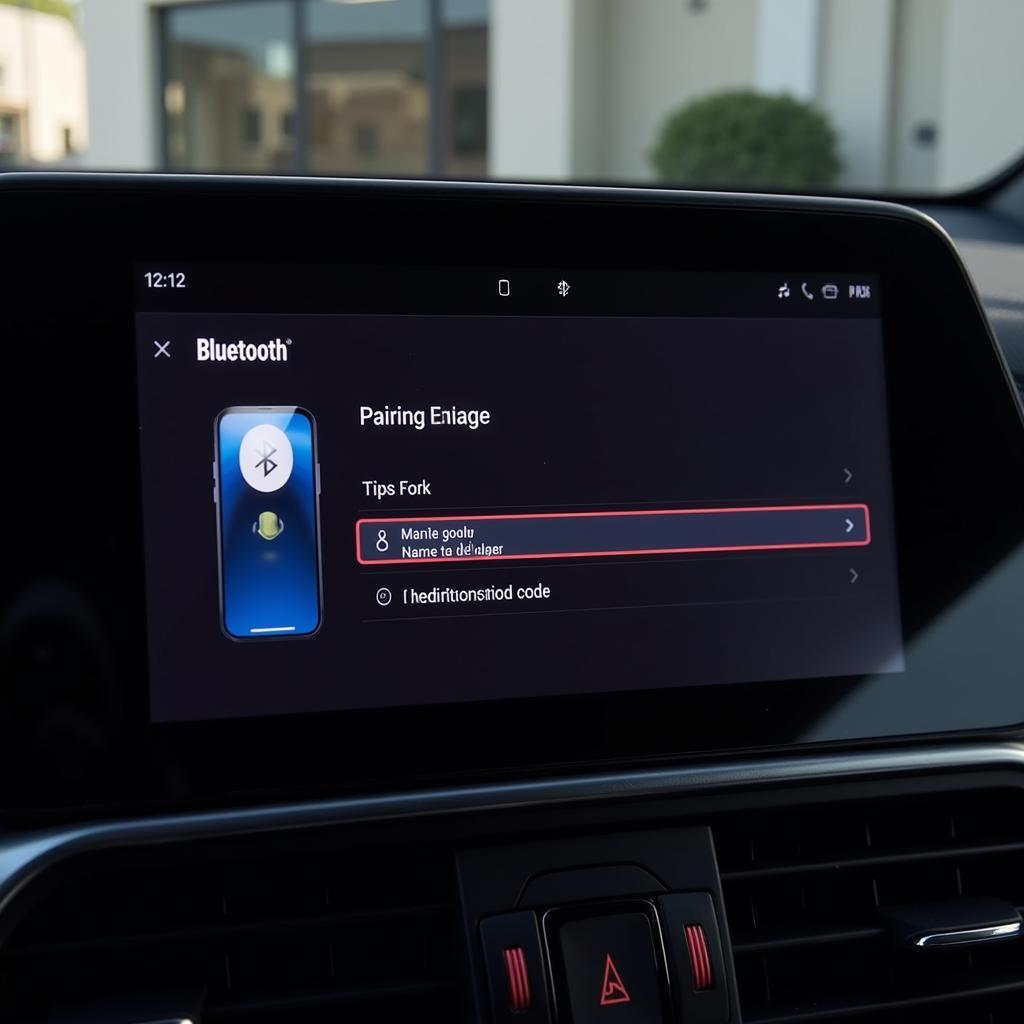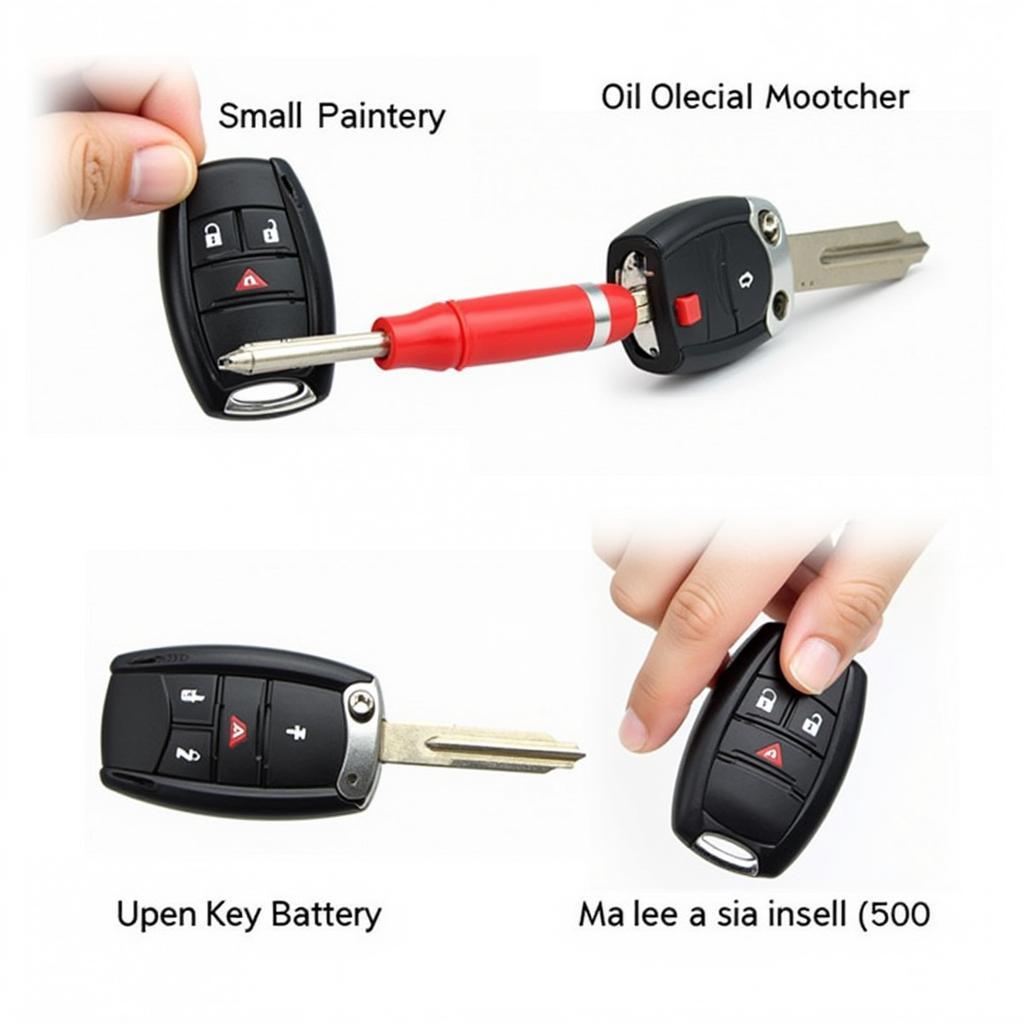If your battery loses charge overnight, you’re not alone. This frustrating issue can leave you stranded and searching for answers. This comprehensive guide will delve into the common causes, diagnostic techniques, and solutions for a car battery that drains overnight. We’ll explore everything from parasitic draws to faulty alternators and provide you with the knowledge to get your car back on the road. car battery dead in garage
Why Does My Car Battery Lose Charge Overnight?
A battery losing charge overnight indicates a problem within your vehicle’s electrical system. The battery is designed to start the engine and then be recharged by the alternator. However, several culprits can prevent this process from working correctly, leading to a dead battery in the morning. These culprits range from simple things like leaving your lights on to more complex issues like a parasitic draw.
Common Culprits of Overnight Battery Drain
- Parasitic Draw: This refers to any electrical component that continues to draw power even when the car is off. This could be anything from a faulty dome light to a malfunctioning radio.
- Failing Alternator: The alternator recharges the battery while the engine is running. If the alternator is failing, it won’t recharge the battery properly, leading to a drained battery overnight.
- Old Battery: Batteries have a limited lifespan. An old battery may not hold a charge as effectively, resulting in overnight drainage.
- Extreme Temperatures: Extreme cold or heat can affect a battery’s performance and lifespan, potentially leading to quicker discharge.
- Corroded Battery Terminals: Corrosion on the battery terminals can hinder the flow of electricity, preventing the battery from charging properly.
Diagnosing a Battery That Loses Charge Overnight
Identifying the cause of overnight battery drain requires systematic troubleshooting. Here’s a step-by-step guide to help you pinpoint the problem:
- Check the Obvious: Ensure all lights, interior and exterior, are turned off. Also, check the glove compartment light and trunk light. Sometimes, a simple oversight can be the culprit.
- Visual Inspection: Inspect the battery terminals for corrosion. Clean them with a wire brush and baking soda solution if necessary.
- Parasitic Draw Test: Use a multimeter to measure the current draw with the car off. A small draw is normal, but anything excessive indicates a parasitic draw.
- Alternator Test: Have your alternator tested to ensure it’s functioning correctly. This can be done at most auto parts stores.
- Battery Test: Have your battery tested to determine its health and charging capacity.
check engine light after battery died
Using a Multimeter to Detect a Parasitic Draw
Using a multimeter can seem intimidating, but it’s a valuable tool for diagnosing overnight battery drain. Here’s a simplified guide:
- Set the multimeter: Set your multimeter to measure DC amps.
- Disconnect the negative battery cable: Carefully disconnect the negative battery cable.
- Connect the multimeter: Connect the multimeter in series between the negative battery cable and the negative battery terminal.
- Observe the reading: The reading on the multimeter will indicate the current draw. A reading of over 50 milliamps usually suggests a parasitic draw.
“A common mistake people make is assuming their battery is bad when it’s actually a parasitic draw causing the problem,” says John Smith, a certified automotive technician with over 20 years of experience. “A simple multimeter test can save you time and money.”
Preventing Overnight Battery Drain
Preventing overnight battery drain requires proactive maintenance and careful attention to your vehicle’s electrical system.
- Regular Battery Maintenance: Clean the battery terminals regularly and have your battery tested periodically.
- Promptly Address Electrical Issues: Don’t ignore warning signs like dimming lights or slow starting.
- Be Mindful of Accessories: Avoid leaving accessories plugged in when the car is off.
- Limit Short Trips: Short trips don’t allow the alternator enough time to fully recharge the battery.
“Think of your car battery like a phone battery,” explains Maria Garcia, an electrical engineer specializing in automotive systems. “Short trips are like quick charges that don’t fully replenish the battery, eventually leading to a drained battery.”
Conclusion: Keeping Your Battery Charged
Dealing with a battery that loses charge overnight can be a nuisance, but by understanding the causes and implementing the diagnostic steps outlined in this guide, you can effectively identify and resolve the issue. Regular maintenance and prompt attention to electrical problems are key to keeping your battery charged and your car running smoothly. Remember to check your battery and alternator regularly, especially if you notice your battery loses charge overnight. check engine light battery dead
FAQ
- How long should a car battery hold a charge when the car is off? A healthy car battery should hold a charge for several weeks, even with minimal use.
- Can a bad alternator drain a battery overnight? Yes, a faulty alternator will not recharge the battery while the engine is running, leading to a drained battery overnight.
- What is the most common cause of a parasitic draw? Faulty interior lights, aftermarket accessories, and malfunctioning radios are common causes of parasitic draws.
- How can I tell if my car battery is bad? Signs of a bad battery include slow cranking, dimming lights, and a clicking sound when turning the key.
- How often should I replace my car battery? Car batteries typically last 3-5 years, but extreme temperatures can shorten their lifespan.
- Can I jump-start my car if the battery drains overnight? Yes, you can jump-start your car, but it’s important to address the underlying cause of the drain.
- Is it safe to drive with a parasitic draw? Driving with a significant parasitic draw can eventually lead to a dead battery and leave you stranded.



